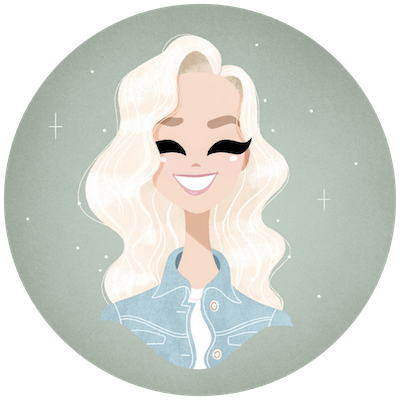Why I Started Getting Cast When I Stopped Worrying About ‘Type’
I will never forget meeting with my college professors for an end of semester meeting. One of the professors peered at me through his glasses.
“You know,” he said. “When I get new students into the program, I ask myself which role would they play in Into the Woods. Would they be a Baker’s Wife? A Witch? A Little Red? Cinderella? Once I answer that, I have a pretty good sense of what their type is.”
He shook his finger at me, thoughtfully.
“The thing about you,” he said. “Is that you could really be any of those parts.”
I blinked.
“Thank…you?” I said, unsure of how to reply.
“Yes, yes. It’s a compliment,” he nodded. “But it comes with its’ problems. You see, you may be able to play any of those parts, but there are people who will fit each one much more definitively than you. Frankly, I’m not entirely sure what to do with you.”
It’s a meeting that has stuck in my mind as I finished my BFA degree and returned to the real world to pursue an acting career. I was lucky to be getting work, but there were no common themes amongst the roles that I got. One day, I’d be playing an ingénue. Another day, a dorky intern. Sometimes, I would even play a pig.
I looked around me, at my peers, who would talk excitedly about upcoming shows, and the roles they were attempting to go for.
“I think I’m really well suited to the part,” one of them would say, smiling over her audition book full of classic soprano songs that mirrored her resume perfectly.
My own book was chock full of pieces that didn’t seem to be marketing me as any one thing. When I looked at audition postings, I was never sure what role to go for. Was I pretty enough to play the lead? Was I funny enough to be the best friend? Was I a good enough dancer to be in the ensemble? Was I enough of anything?
What I went through is a more common situation than you might think. Many actors are paralyzed by the idea of finding their ‘type.’ The fact of the matter, is that very few of us clearly fit neatly into any specific category. Still, the concept of ‘type,’ looms over us.
It wasn’t until I came across a blog post by actress and writer Alexandra Silber, that I changed my thought process. In the post, she suggests, instead of trying to figure out what other people see you as, make a list of the types of roles that come easily to you.
“When you read a piece and can actually feel the words in your mouth, when you watch something and think "I can do that with my eyes closed" then you are getting closer. This has nothing to do with what an actor looks like, it has to do with what they ARE like,” Silber writes.
I took her advice and began writing down archetypes that came easily to me: Anything intensely wordy, highly intelligent characters, ‘dumb blonde,’ shy and awkward, etc.
When I was done, I was left with a list of traits that I felt confident that I had mastery over. Finding pieces that matched those traits and showed me off in my best light was suddenly much easier.
And, what do you know? Before long, I was receiving more callbacks and more work.
I was no longer trying to stuff myself into someone else’s rigid box, but instead was simply showing up to the audition room with good work. It turns out, casting directors are much more interested in your talent than how well you can cast yourself. After all, if casting the show was up to us actors, they’d be out of a job.
When talking about ‘the acting business,’ it can be so easy to get wrapped up in the business side, and forget that, at the end of the day, our job as performers is to tell stories with as much honesty and heart as we can. When we let go of all the extraneous details, we free ourselves up to finding the roles and pieces that allow us to speak truth.
And that’s what it’s really all about.
Maureen O'Malley is an actress, musician, and writer based out of the Twin Cities.

